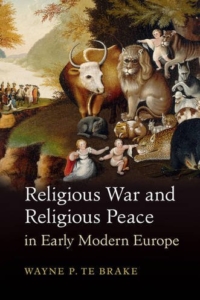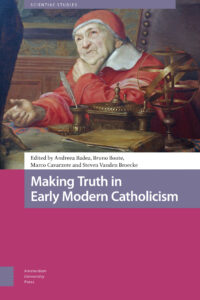About the Book
Religious War and Religious Peace in Early Modern Europe presents a novel account of the origins of religious pluralism in Europe. Combining comparative historical analysis with contentious political analysis, it surveys six clusters of increasingly destructive religious wars between 1529 and 1651, analyzes the diverse settlements that brought these wars to an end, and describes the complex religious peace that emerged from two centuries of experimentation in accommodating religious differences. Rejecting the older authoritarian interpretations of the age of religious wars, the author uses traditional documentary sources as well as photographic evidence to show how a broad range Europeans – from authoritative elites to a colorful array of religious ‘dissenters’ – replaced the cultural ‘unity and purity’ of late-medieval Christendom with a variable and durable pattern of religious diversity, deeply embedded in political, legal, and cultural institutions.
Reviews
‘Wayne P. Te Brake’s comparative approach to religious war and peace across northwestern Europe after the Protestant Reformation offers a newly coherent language for understanding how Europeans learned – in complex and messy ways – to live side-by-side with those they viewed as ‘heretics.’ In a modern world facing new threats of religious war, Te Brake’s clear-eyed yet optimistic interpretation of past generations’ struggle to find religious peace will interest many readers – enhanced by his creative use of visual representations of religious co-existence from across the divided continent.’ Randolph C. Head, University of California, Riverside
‘Religious War and Religious Peace in Early Modern Europe brilliantly brings together three phenomena, which are usually treated separately: the dynamics of religious wars, the complex processes of religious peace-building, and the conditions for religious coexistence in early modern Europe. This is a highly stimulating contribution to both historical and present peace and conflict research.’ Dagmar Freist, Carl von Ossietzky Universität, Oldenburg, Germany.




